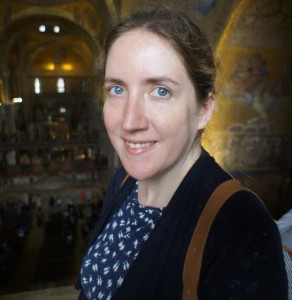By: Elinor Hawkes
As an archivist, I firmly believe that preservation and access are two sides of the same coin; one cannot happen without the other. This is particularly true during digitization projects, and on collections such as Early Arabic Printed Books from the British Library where a large body of material is being made widely accessible for the first time, we have worked closely with a conservator from the British Library to ensure material is protected during scanning.
The project means that many early Arabic books will be available online for the very first time, but for some books it is not just their digital version that will be available; some of them had never been readable before, and required conservator intervention before the text could be revealed. Here are some of my favorite examples:


![[Kaydānī, ‘Khulāṣat Kaydānī maʿa tarjamah Afghānī’], Delhi 1882](https://blog.gale.com/wp-content/uploads/2016/11/EAPBImage-4-176x300.jpg)
In order for content to be accessible, it has to be preserved. In order for it to be preserved, it has to be accessible. It is gratifying to know that through our efforts with the British Library, the hidden texts within these books can be enjoyed now for the first time, and for generations to come.
About the Author
I joined Gale in December 2014 as Digital Product Editor, working particularly on our Early Arabic Printed Books from the British Library and Stuart & Cumberland Papers from the Royal Archives projects. I’m a qualified archivist and before joining Gale I worked in the Universities sector for nearly 10 years, so I’m delighted to continue working with Archives and Academics in a role that has broadened my horizons and introduced me to new challenges.Air Jordan



